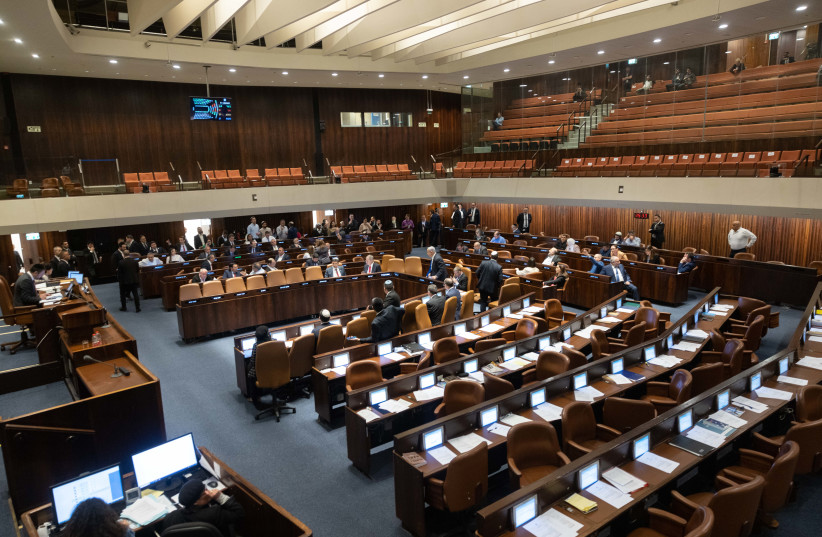The judicial reforms that the government is considering will have severe consequences for Arab-Israelis, the Israel Democracy Institute warned in a new report on Sunday.
The report, written by Dr. Muhammed Khalaily and Adv. Oded Ron said that if even one of the proposed reforms is passed into law, it will undermine the Supreme Court's authority and drastically alter its composition and character, leaving the Knesset completely unchecked. One of the first groups in the country to suffer the consequences of this will be the Israeli-Arab minority, the report claimed.
The Israel Democracy Institute noted that Israel's identity as a Jewish and democratic state and its constitutional and political structure pre-define the status of Arab-Israelis, who have almost no ability to influence policy that affects them. The report noted that Arab representatives are not part of the current governing coalition and that even when they are, they do not hold positions of power.

The report said that this is due to systemic delegitimization designed to ensure Arab-Israelis do not hold positions of power and also, in part, to the worldview of some representatives of the Arab-Israeli public.
The report added that despite positive changes, the representation of Arab-Israelis in the public bureaucracy is not sufficient to make it possible to benefit Arab-Israeli society and ensure that adequate services are provided to people who need them.
The Israel Democracy Institute cited its 2023 Israel Democracy Index as indicating that Arab-Israelis' trust in the Supreme Court has fallen precipitously, from 78% in 2012 to only 40% in 2022. That said, Arab-Israelis' trust in the Supreme Court is much higher than their trust in other government institutions, including political parties, the Knesset, the government and the president.
The institute suggested, without clear evidence, that this decline in trust could be due to a perception that the court has not adequately protected the rights of the Arab-Israeli minority.
Potential impact of the override clause
Furthermore, regarding the so-called "override clause," which would allow a simple majority in Knesset to override Supreme Court rulings, the institute commented:
“Passing the override clause into law is likely to make it even more rare for the Supreme Court to strike down legislation. This fact alone poses a threat to the Arab public. An example of a law that was revoked which harmed the Arab public in practice, even though this was not its intention, was the clause that allowed the state to withdraw a citizen’s eligibility for income support if they use a car (which was the subject of a successful petition by Salah Hassan, together with the organizations Adalah and Sawt Al-Amal). This was because the clause infringed on the right to minimal dignity derived from the Basic Law: Human Dignity and Liberty. The ruling was particularly significant for Arab society, which has limited access to efficient public transport.
“Beyond such cases of indirect harm, the override clause will open the door to unfettered efforts to pass legislation that will directly harm the Arab public, and will strip the Court of its powers of judicial review.”
“Beyond such cases of indirect harm, the override clause will open the door to unfettered efforts to pass legislation that will directly harm the Arab public, and will strip the Court of its powers of judicial review.”
Israel Democracy Institute
The report also highlighted the potential impact of proposed changes to the Judicial Selection Committee: “There is real concern that the proposed changes to the Judicial Selection Committee will have a negative impact on the representation of the Arab population in the judicial branch, due [to] the prioritizing of political considerations over professional considerations.
"It should be noted that there is also a question about the representation of the Arab minority on the Judicial Selection Committee: In the past, any Arab members of the Committee were usually from the Israel Bar Association (and the current proposals call for removing the Association’s representation on the Committee) or were judges. In the future, if the proposed changes are made, will there be any Arab representation? There is real concern that the answer will be no.”
The report also warned against allowing ministerial legal advisers to be appointed to positions of trust, saying, “Legal counsel provided to government ministries is tasked with protecting the public interest. If it is guided by political considerations, then there is justifiable concern that the Arab public will suffer discrimination in the policies pursued by government ministries—discrimination that government five-year plans have sought to rectify since 2015.”
